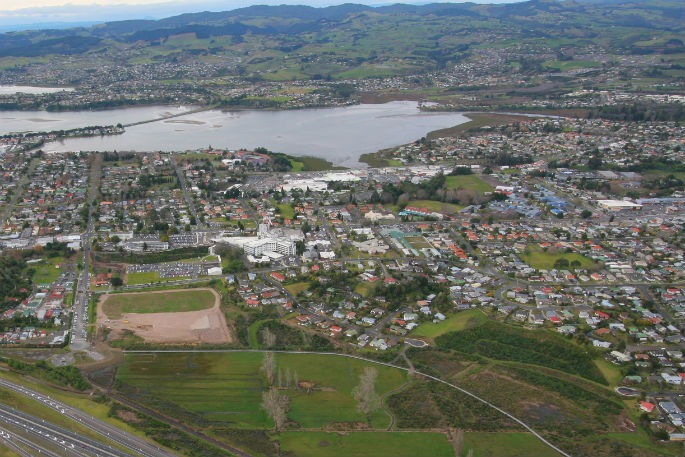Mayors of some of the country's largest cities have been caught off guard by the government's housing density announcement.
National and the government have teamed up to slash red tape by August next year with the aim of making it easier to build more apartments and townhouses.
Councils were kept in the dark until the day of the announcement.
Many of them have already started work on their district plans to comply with a government directive last year to increase housing density.
Changes to the Resource Management Act would allow people to develop up to three homes of up to three storeys on most sections without the need for a resource consent - with exemptions for heritage areas and natural hazards.
Auckland, Hamilton, Tauranga, Wellington, and Christchurch would be required to adopt the medium-density residential standards and could result in 105,000 new homes in the next eight years.
Labour List MP Tamati Coffey says this is a great announcement for the Waiariki rohe.
'Warm dry homes are in desperate shortage across our region and I support any initiative to ramp up supply.
'The changes announced specifically targets Tauranga, Western Bay and Rotorua Lakes Council's ability to intensify housing in our communities by building up and enabling a rezoning fast track of residential land.
'This is one of the many changes, alongside the large scale building of social housing and the significant Budget 2021 investment into housing affordability and infrastructure."
But Wellington mayor Andy Foster has been blindsided by the changes.
"The announcement made is going to, over time, fundamentally change the look and feel of our major cities. It would have been nice to have some engagement on that with government in advance," he says.
The timing is particularly poor, with the council's district plan going out for consultation today.
"What we now need to say to the public is the nature of the outer residential parts of our city may well change significantly from what was advertised," he says.
He worries intensification in the outer suburbs could lead to more people driving into the city - something that went against plans to get more people using public and active transport.
Christchurch deputy mayor Andrew Turner backs intensification of urban centres.
But he too is worried about more traffic coming in the CBD and wants assurances this would not lead to higher density in unsuitable areas.
"I would be very concerned if this brought about significant densification in places like Akaroa for example, which are within the Christchurch district but well removed from the Christchurch urban area.
"And also, if we were looking at significant densification in for example Rolleston or Rangior, that was increasing the amount of traffic coming into the city," he said.
Hamilton mayor Paula Southgate says the city could "irrevocably change".
"The reality is that the standards announced today are a lot more relaxed than our current district plan rules.
"They will enable quite radical changes to height, plus how close and how high you can build to the front and side boundaries of sections. They are significant and they will change the look and feel of some of our neighbourhoods."
The RMA changes will stream consents a year earlier than planned.
Southgate backs this but says the new timeframe will add pressure to an already stretched council.
"It's a lot for us to deal with in the infrastructure space, there's water with the RMA review and so on, so this is another piece of work that we have to adapt to.
"Councils are of course under pressure and we are also dealing with the pressures of Covid-19," she says.
She wants central government to meet them part way with infrastructure and transport funding.
Auckland mayor Phil Goff also wants more funding.
"With the rate of growth that we've got and the cost of infrastructure, particularly with construction inflation and all the challenges that go with that, we need a whole lot more money to be able to create the infrastructure to maximise the level of housing construction," he said.
The government has committed $3.8 billion for councils through the Housing Acceleration Fund, but Goff said it was not enough.
All the mayors and deputy mayors RNZ spoke to support higher density housing to increase stock but are also keen to put their two cents in on the changes when the bill opens up for submissions.



2 comments
Roading
Posted on 20-10-2021 08:09 | By Equality
Surely TCC are going to have to have a rethink on the rehashing of Cameron Road. Stop it immediately!
Tom Ranger
Posted on 02-11-2021 20:31 | By Tom Ranger
Message from TCC to Equality. No.
Leave a Comment
You must be logged in to make a comment.